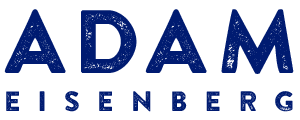Adam is an Associate Teaching Professor and Director of the Externship Program at the University of Washington School of Law. In addition to teaching an Externship Seminar and other law school courses, he also teaches the following law and ethics classes for the UW Museology (Museum Studies) Graduate Program:
MUSEUM 563: WHO OWNS HUMANITY?
WHO OWNS HUMANITY? explores the legal and ethical questions surrounding the ownership of art, artifacts, digital collections, information, human language, ancient skeletons, biological data and human DNA. Where should we draw the line between what can be owned by individuals, corporations, and nation-states, and what belongs to the human race as a whole? If the “human race” owns, who controls? If the First Amendment guarantees free speech, why do Americans argue over the right to burn a flag or to bend a knee in protest? How do we define identity in an era of ever-changing gender fluidity? Why do notions of race continue to divide us when we live in an increasingly multi-cultural society? Who should decide what is science versus faith? Facts versus myth? Ultimately, how should ownership be defined in the 21st Century, and what ethical issues are raised for museums and libraries?
Photo by Douglas Eisenberg
MUSEUM 562 / LAW E 562: MUSEUM LAW
MUSEUM LAW introduces students to the myriad laws effecting museums today, from copyright and the First Amendment to protections for Native American graves, cultural property and World Heritage Sites. Among the many questions studied: Does owning the physical painting mean the owner has the right to sell prints of the image? Could Mayor Rudy Giuliani of New York shut down the Brooklyn Art Museum because he didn’t like a painting it wanted to display? How did the Nazi effort during World War II to steal the art treasures of Europe shape the post-war laws regarding art and cultural property? Throughout the quarter we study the laws of a given subject and discuss the moral and ethical issues raised by those laws in an effort to answer one overriding question: Who should be the caretakers of the world’s art and artifacts? (This course is cross-listed with the UW School of Law)

